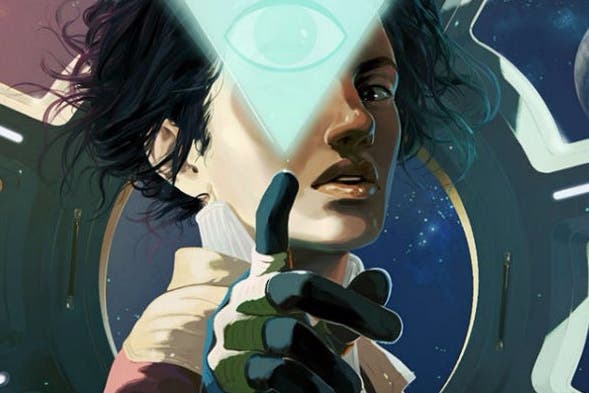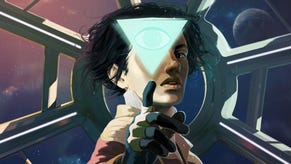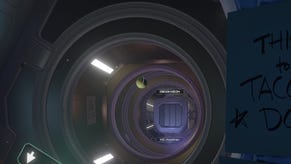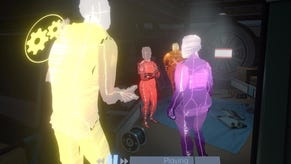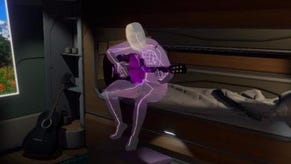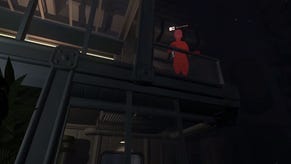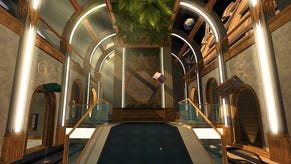Tacoma review
Home away from home.
Tacoma doesn't require your input, only your patience. Set a few thousand miles above the Moon's surface in the late 21st century, it casts you as Amy Ferrier, a network technician contracted to recover an advanced AI, ODIN, from an abandoned space station. The setup recalls any number of sci-fi horror yarns, from Alien to Arkane's recent Prey, but there are no failing ship systems or abyssal monsters to wrestle with in Tacoma - indeed, no animate entities at all, save for the trash disposal drone that buzzes around the facility's zero-gravity core. Rather, Amy's task boils down to reaching a handful of access points found at junctions throughout the station, plugging in her pleasingly scruffy fold-out terminal and waiting for portions of ODIN's enormous brain to download. I haven't gone back to check, but I suspect you can complete the whole game - an evening's play, at most - without doing anything other than watching percentage points accrue.
In practice, of course, you'll probably mooch through the rooms nearby, studying objects like scrunched-up food wrappers and touchscreen worktables for hints about the events that led to the station's evacuation. You'll also stumble on recordings of crew activities that can be played back as holographic projections - key moments from the days before the crisis, preserved like flies in amber. Then, having exhausted the area's ambient narrative possibilities, you'll wander back to the intersection, collect your terminal and set off for the next area. It's a subtle transformation of your role in The Fullbright Company's 2013 debut Gone Home, though the experience is otherwise very similar. Gone Home was about filling in the picture after a year's absence, tracing the unfolding of a family crisis in the interplay of objects and artefacts. Tacoma offers up its fair share of mildly diverting detective work, but on some level it's just about filling time.
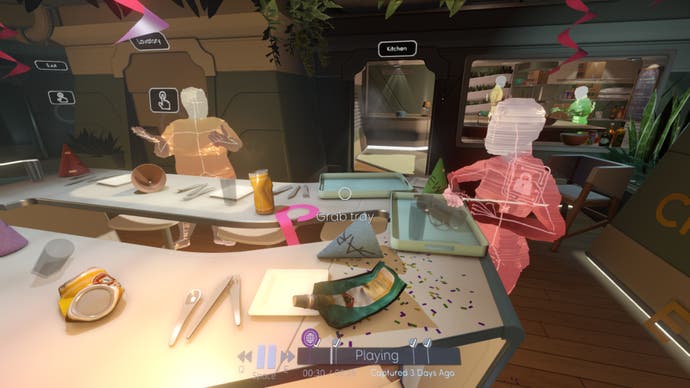
All of which makes it a very apt platform for a story about the growing superfluity of human labour in the age of computers and robotics. As with much of the best sci-fi, Tacoma is at heart a response to something very contemporary, the erosion of lives and livelihoods by mass automation and the corporatisation of society. It presents a neoliberal dystopia among the stars that is, you sense, but a couple of "disruptive innovations" removed from the present, in which AIs take care of exciting, high-level tasks like scanning for meteorites while their human handlers organise themed bar nights, play video games and churn out dreary monthly reports. The game's eight characters are all, in various ways, struggling for some kind of dignity or purpose within a system that views their aspirations as an inconvenience. It's a struggle writ small in every piece of bric-a-brac you'll pick at, from ODIN's leaden e-missives on how to make paper party decorations to the picture of the CEO vengefully stapled to the recreation area dartboard.
The sheer loneliness of all this is encapsulated by the station's marvellous anti-gravity hub section - a tunnel of individually rotating segments with the distant Earth visible through a window at the far end, as though caught in the wistful gaze of an enormous telescope. There's a 360 degree basketball court halfway along it, complete with a scoring klaxon; at one point I managed to scare myself to death by leaving the ball to float through a hoop behind my back. Reached by elevators that unlock as the story unfolds, the surrounding segments are a lot less imposing, a jumble of medical labs, hydroponic gardens and offices, explored on foot and straightforward enough to render a map screen unnecessary. This may disappoint, after the grandeur of the station's hub, but it's entirely in keeping with the theme.
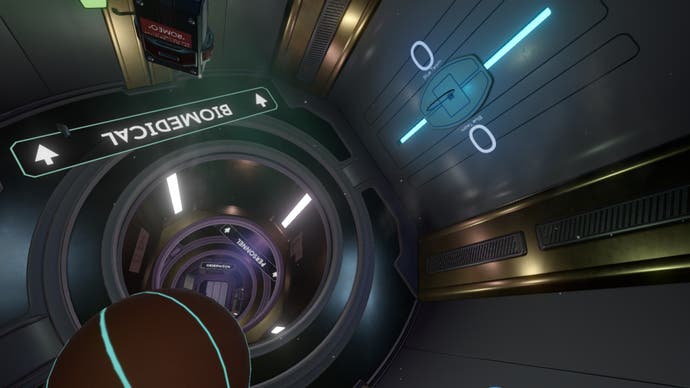
Where games like Dead Space portray the colonisation of space as the peak of architectural hubris, Tacoma sets out simply to imagine how individuals might carve out private lives for themselves in orbit. Its chief flourishes aren't glistening canyons of solar panels or cathedral-sized hangar bays, but scrambling attempts to make an extraordinary environment feel ordinary, homely, personal: a prayer mat rolled out facing Earthwards, or a curtain fixed up across the entrance to somebody's bedroom, or a heap of beer cans in a maintenance shaft. There is, of course, a complex prehistory to glean from the odds and ends you'll sift through - one of the game's niftiest devices is a magazine crossword puzzle that doubles as a primer on the Earth's development since 2017 - but it's never the focus. This is a tale of sci-fi survival that, much like the original Alien, is content to play out in a backwater, offering only fleeting glimpses of the universe beyond.
As tales of survival go it's perhaps a little too short and sweet - if you have any familiarity with stories about AI in games generally, you'll probably suss out the gist within the opening half-hour. It's lifted, however, by the game's alternate reality flashback mechanic. At first this feels like a tired-out gimmick - we've seen "ghost" memory sequences before in games as divergent as Tom Clancy's The Division and Resident Evil - and you could argue that it steals away oxygen from the nuance of the environment design. But the cutscenes themselves are engagingly acted and voiced, and there's a winning artfulness to how characters drift together and apart during these sequences.
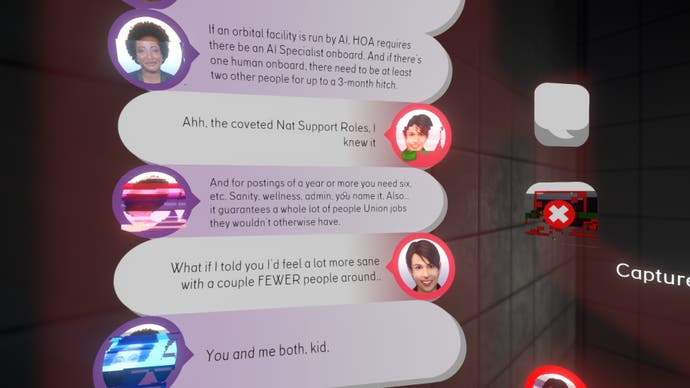
Following one conversation to its conclusion, then rewinding to chase down another character's reaction to a key event, adds layers of intrigue to what is otherwise a fairly threadbare plot. There's a modest puzzle element, moreover, in the opportunity to retrieve and view another character's AR data at certain points in each flashback, for a bit of additional context - you'll catch instant message threads and emails that, for example, give away the anxiety simmering beneath the surface of somebody's businesslike demeanour. The decision to represent the cast during flashbacks as hazy, coloured outlines tied together by wireframes is another smart touch. Though presumably necessary to avoid the expense and difficulty of actual facial animations, it also lets you fill in the blanks based on the writing - and the writing is sharp, channelling a range of voices, backgrounds and degrees of articulacy with grace and wit.
Tacoma is unlikely to win over those who reviled Fullbright's first game, and by virtue of the workaday premise, it lacks the thrill and splendour of certain other recent sci-fi efforts set in artificially enclosed environments. Frictional's incredible Soma, especially, investigates a few of the same fundamental concepts at greater length and with greater power. But this is, nonetheless, a vivid revisiting of Gone Home's core conceit - a game far distant in time and space that kindles much the same mixture of intimacy, sadness and hope.
